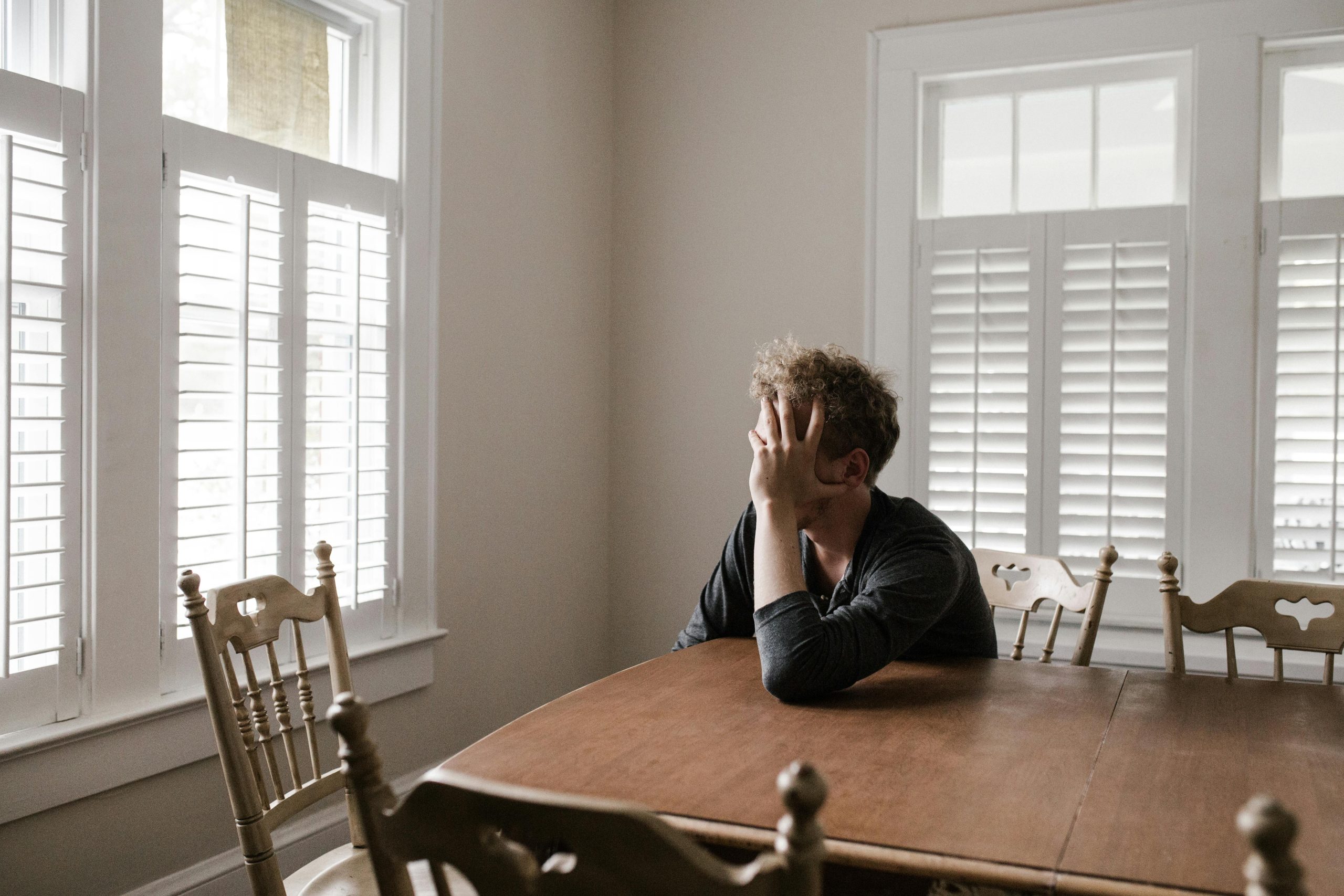Relationships can fall apart for any number of reasons, and we tend not to realize we’re going through a rough patch until it’s too late. When you begin to fall out of love with your partner, it might not feel too dissimilar to other rough patches you’ve faced, as you react and respond to conflicts in predictable ways. However, the added weight of the relationship at stake means the feelings are magnified.
It’s likely that you still love your partner, and, in a vacuum, respect them, and enjoy their presence – just not in the way you want from a relationship. As you can guess, this is a complicated emotional experience and not one that can be fixed easily. Much of the time, it isn’t anybody’s fault, and nothing in particular goes wrong. Sometimes, relationships just burn out.
Daily anxiety becomes the norm
It can be confusing, upsetting, and somewhat harrowing to feel as though you’re losing touch with your partner. Not knowing – or refusing to face – why that is can make things so much more difficult. Dealing with your partner suddenly becomes an anxiety-spiking ordeal, as you hold this huge undefined weight overhead.

It’s hard to broach these topics with a partner. You don’t just want to tell them that you’re feeling disconnected from the relationship, so instead you hold it in. This is typically the first sign, as you start coming to terms with your emotional shift, but don’t quite understand it yet.
You have less interest in intimacy
Plenty of relationships go through dry spells, and it doesn’t necessarily mean that there’s no love there. Life is complicated and stressful, but you can always work with your partner through intimacy issues – assuming the love is still there on both sides.

As you start to fall out of love, things change. Sex can suddenly start to feel wrong, like you shouldn’t be doing it with the person you’re in a relationship with, and that’s a somewhat scary feeling. As you start to lose that aspect of connection to them, you may pull away from sex or intimacy in general, and from there more cracks start to appear.
You argue about things you otherwise wouldn’t
If conflict is suddenly a daily part of your relationship, there’s likely a much deeper issue at play. Even couples who tend to never fight can start to find conflict in everyday situations once one of them starts to fall out of love. There’s an overall drop in how much leniency you can grant someone you don’t love anymore.

It could be that those issues have always been there under the surface, and are only now raised in this new found atmosphere of hostility. Either way, the result is very much the same. It’s here that you will both notice something is wrong, though you might still not fully understand that you have emotionally separated from your partner.
You spend less time together
The longer you’re in a relationship, the more time you’re going to spend around your partner. It’s important that you both enjoy that, and find ways to make both the everyday and the quality time special.

If you start to fall out of love with your partner, you’re going to look for any excuse to spend time apart from them. That often manifests in more time spent at the office, out with friends, or even on purely solitary activities, as your domestic life is now a reminder of those conflicted feelings. You might even start desiring the rare few seconds you get alone, as you notice a sense of relaxation without their presence.
You think about being single a lot
It’s not uncommon to have a passing thought about the alternate-dimension you who’s still single and ready to mingle, but it’s a bad idea to indulge in that fantasy too often. The commitment of a relationship can stop you from pursuing some of the things you might have wanted in life, but it also opens the door to many others.

When your thoughts are preoccupied with the idea of being single, it’s probably a sign that you’re losing interest in your relationship. You’ll start being neglectful and inattentive as your focus shifts elsewhere, unless you deal with those feelings in some way, such as therapy, or discussing them with your partner. Or, both, in that order.
You think about “I” more than “we”
Although it’s healthy to have a solid sense of self, especially while in a relationship, when you make decisions that impact your life you should really consider your partner’s perspective too. A solid union is built on trust, empathy, and consideration, and love makes it much easier to balance all of those things on a daily basis.

When that connection starts to fray, you might find yourself putting your own needs much higher than those of your partner, and that can lead to serious issues. Even decisions that only affect you will have a knock-on effect in their lives, so you owe it to them to communicate the big things as well as the little ones.
You feel apathetic towards the relationship
When you reach the point of no longer caring whether or not the relationship survives, it is probably too late to salvage it at all. Hope is a tremendously powerful force, and it’s often what couples will hold onto in their darkest hours. When you have no hope even when nothing else is amiss, you should recognize that there’s nowhere left for your relationship to go.

Just because love is absent, it doesn’t make ending a relationship easy. There could still be plenty of positive feelings toward each other, as well as some aspect of dependence, which make calling it off seem like a disaster. However, if you don’t care what happens to the relationship, you’re doing both yourself and your partner a disservice by dragging it along.
You feel like you can’t talk to your partner about your feelings
Part of growing up and entering the real world is learning that your feelings are of limited importance to quite a few essential mechanisms of life. Food prices don’t care how you feel, the housing market certainly doesn’t, and let’s not even talk about how little Netflix does.

Your partner, however, is the one person who should always care how you feel. You chose each other, and together, you take on the world that doesn’t care. To find the strength for that, you need a strong foundation of care – and that starts with a partner with whom you can discuss anything. If it ever feels like they don’t care about your feelings, or even that they’re irritated by your emotions, it’s likely that they’ve started to fall out of love.

